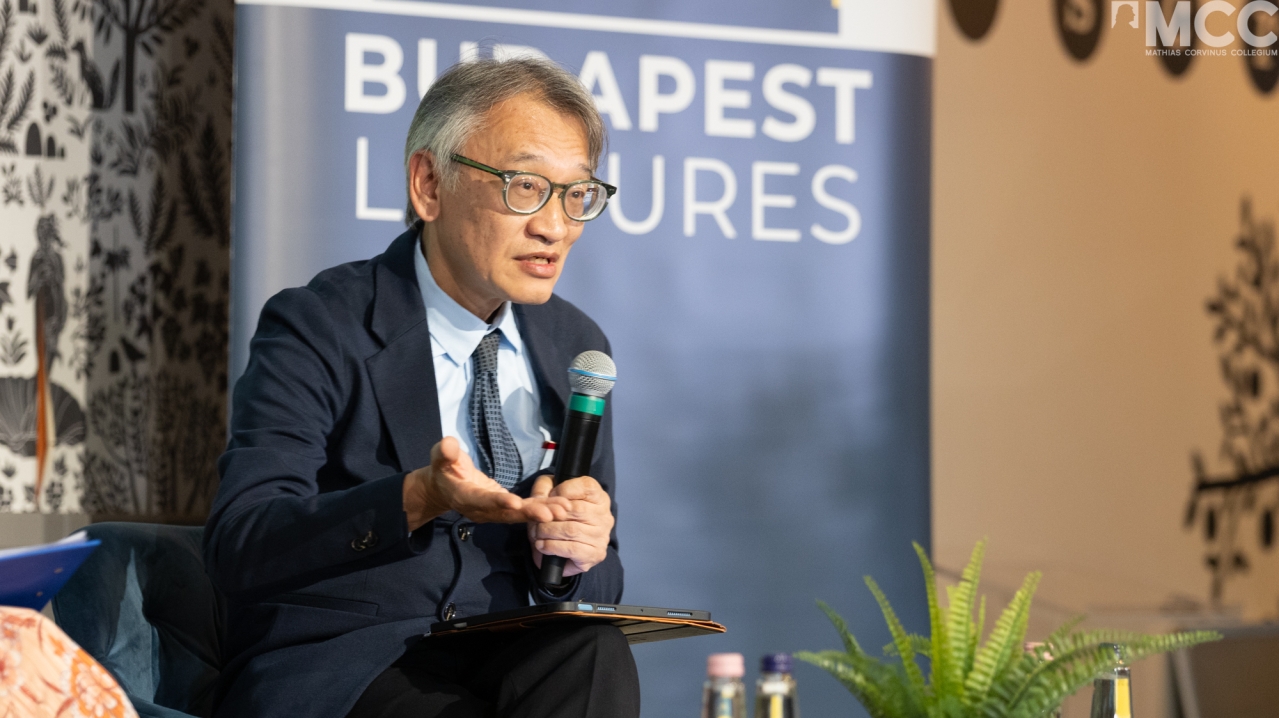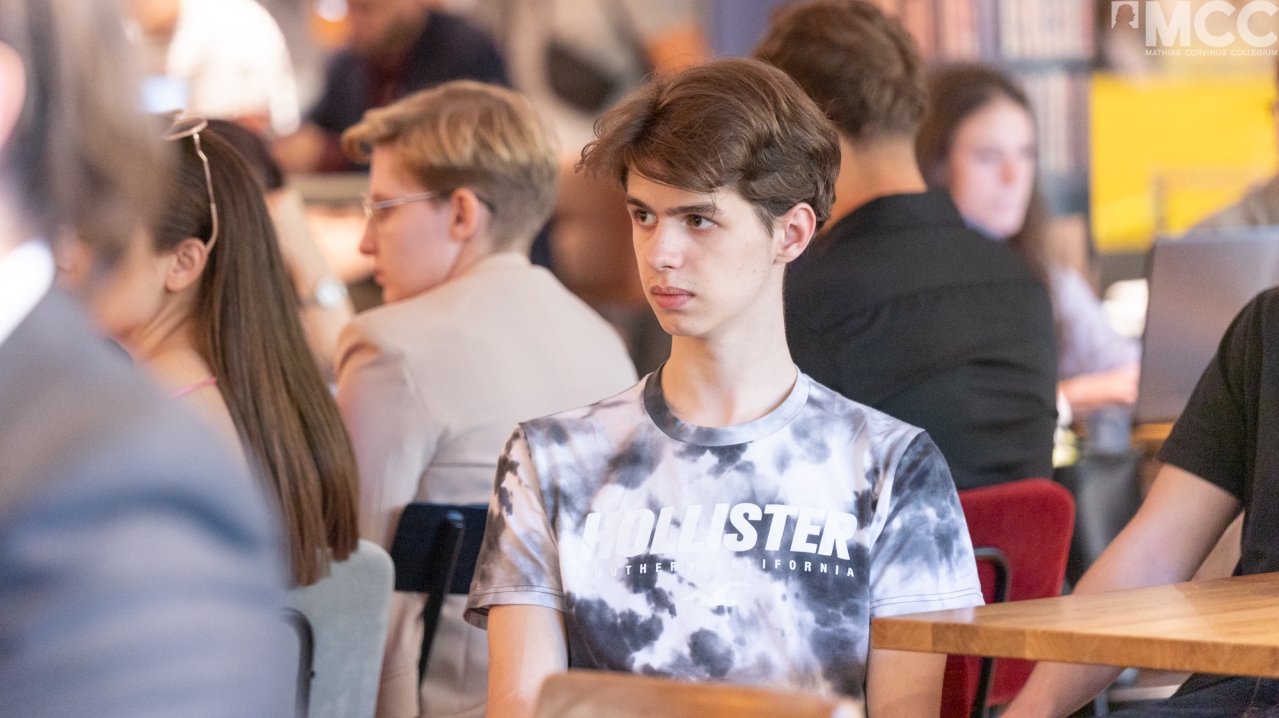Reading time: 1 minute
The Budapest Lecture held on the 2nd of October focused on duty, the evolution of this concept over the centuries, and its impact on Japanese society. The discussion also shed light on how the so-called „No war clause” of the Japanese constitution and debates over its changes. The discussion featured Hajime Yamamoto, Professor of Law at Keio University, who guided the audience through the various topics, in addition to the moderator Noémi Pálfalvi, Head of the MCC’s International Directorate
When European people hear the words "Japan" and "duty" in the same sentence, the first associations that come into mind are most often related to bushido or the way of the samurai. However, duty and social responsibility permeate not only Japanese culture, but all East Asian cultures. Hajime Yamamoto noted that, primarily due to its geographic characteristics, Japanese society is rather isolated, and law and legal duty are new concepts. With the globalization of law, Japan is under constant pressure to make changes to its legal system, such as the abolition of the death penalty and the legalization of gay marriage.
Professor Yamamoto all discussed article 9 of the constitution which stipulates that Japan renounces the sovereign right to wage war, and seeks international peace based on justice and order, therefore, armed forces with war potential will not be maintained. The professor described it as "a sanction against Japan," while pointing out that the constitution had not been revised since its adoption in 1947.










